
by Gideon Marcus
A peach of a visit

Here we are again in Atlanta, Gateway to the South. Our last visit to the Dogwood City was at the invitation of Georgia Tech, who asked me, as a science fiction writer, to discuss predictions of the future. Particularly, they wanted my opinion on the dangers of overpopulation, pollution, and nuclear annihilation–and what might be done to avoid catastrophe.
The talk went off rather well, and so now I'm at a conference addressing a bevy of biologists on the nascent science of exobiology, or more accurately, how aliens have figured in science fiction, both in our solar system and without.
I must confess, there is a great feeling of accomplishment in being paid good money to talk about the things I love. And the pastries are free, too!
A peach of an issue
Accompanying me on this trip is the latest issue of Fantasy and Science Fiction. It has made a most pleasant companion (for the most part). Let's take a tour, shall we?

by Bert Tanner
Death and the Executioner, by Roger Zelazny
First up, we have the sequel to Dawn in what is clearly a serial by another name (like Poul Anderson's The Star Fox). As such, I will try to judge each piece as part of a great whole.
And what an excellent part! Zelazny returns us to an unnamed world that is nevertheless explicitly not Earth (betrayed by its two moons). Millennia ago, its colonists split into two castes: The Firsts, blessed with psychic powers, have effective immortality by swapping consciousnesses into other bodies. Everyone else lives in enforced medieval squalor patterned after Hindu tradition. The Firsts are, of course, associated with the Indian pantheon.
One rebel First, name of Sam, has styled himself the Buddha and is reintroducing Gautama's creed. In this installment, the First who has made himself Yama, God of Death, arrives at Sam's purple grove to deliver a fatal message from Kali, head of the Firsts.
Just last article, Jessica Dickinson Goodman lamented that there were precious few f&sf stories that didn't derive their settings from a strongly European tradition. Zelazny has shown that the subcontinent is as fertile a source for inspiration as any other. And where Herbert's Persia-as-SF (Dune) fell flat for me, mostly due to Herbert's inexpertise as an author, in the hands of Zelazny, ancient India-turned-scientifiction sparkles. Plus, there's lots of mighty thews-type combat for those who are into that sort of thing (paging Ms. Buhlert.)
Five stars for this segment.
The Royal Road to There, by Robert M. Green, Jr.
The Jackson family is on a seemingly endless freeway, headed for the unveiling of their uncle's will. Said uncle was an eccentric who kept a horse-and-buggy factory going long after the automobile had become ascendant.
In a Twilight Zone-ish bit, the freeway ensnares the family, depositing them in the town his uncle built, where they are presented with a most unique offer, which may just require them to give up their gas-guzzling beast.
Is the story anti-progress? Or does it simply advocate smarter progress? My brother, Lou, still laments the removal of the little red trains that used to knit Los Angeles together. Now, the San Gabriel Valley is a basin of smog and a snarl of endless traffic. If there had been more sensible city planning and incorporation of public transit and rail, perhaps it wouldn't be this way.
Three stars.
Gentlemen, Be Seated, by Charles Beaumont
In the future, comedy is dead. It seems the progressive types who were offended by racial humor and violent slapstick inadvertently caused the extinction of laughter. It's up to a secret society, armed with bad puns and blackface, to restore hope to mankind.
I hate to speak ill of the dead (Beaumont died on my 48th birthday this year), but this story is as bad as it sounds.
One star.
"…But for the Grace of God", by Gilbert Thomas
A predator of the masculine variety comes across a much more capable predator of the feminine variety. A bit too long-winded and predictable to be truly effective, but I appreciate what the author is doing, nevertheless.
Three stars.
Non-Time Travel, by Isaac Asimov
Every so often, the Good Doctor finds himself so at a loss for ideas, that he picks a pointless subject to expound upon. His piece on the International Date Line is pleasant enough, but it could just as easily have been a paragraph long.
Three stars.
The First Postulate, by Gerald Jonas
On a remote Mexican island, where the Mayan tradition still runs strong, the first two deaths due to natural causes in over forty years of worldwide immortality have been reported. The scientific team dispatched there encounters increasing resistance from the locals, who ultimately fire their base to retrieve the corpses. Is it a kind of insanity that drives the indios? Or is it a natural reaction to an unnatural situation?
Readable, vivid, if not particularly memorable. Three stars.
A Discovery in the Woods, by Graham Greene
Lastly, another after-the-bomb tale, told from the perspective of a band of bandy youths who encounter a house of the giants. This one is all in the telling, a lovely tale that reminds me of Edgar Pangborn's Davy.
Four stars.
Miles to go before I sleep
So ends a perfectly suitable (with one small exception) issue. My only real complaint is that I finished it on the flight out! Luckily, I've got another book reserved for the flight back, which you'll hear about next month.
In the meantime, please wish me luck for tonight's speech!

by Gahan Wilson

![[May 20, 1967] Field trips (June 1967 <i>Fantasy and Science Fiction</i>)](http://galacticjourney.org/wordpress/wp-content/uploads/2022/05/670520cover-449x372.jpg)

![[April 18, 1967] Bright Lights (May 1967 <i>Fantasy and Science Fiction</i>](http://galacticjourney.org/wordpress/wp-content/uploads/2022/04/670418cover-672x372.jpg)



![[March 20, 1967] Vistas near and far (April 1967 <i>Fantasy and Science Fiction</i>)](http://galacticjourney.org/wordpress/wp-content/uploads/2022/03/670320cover-672x372.jpg)
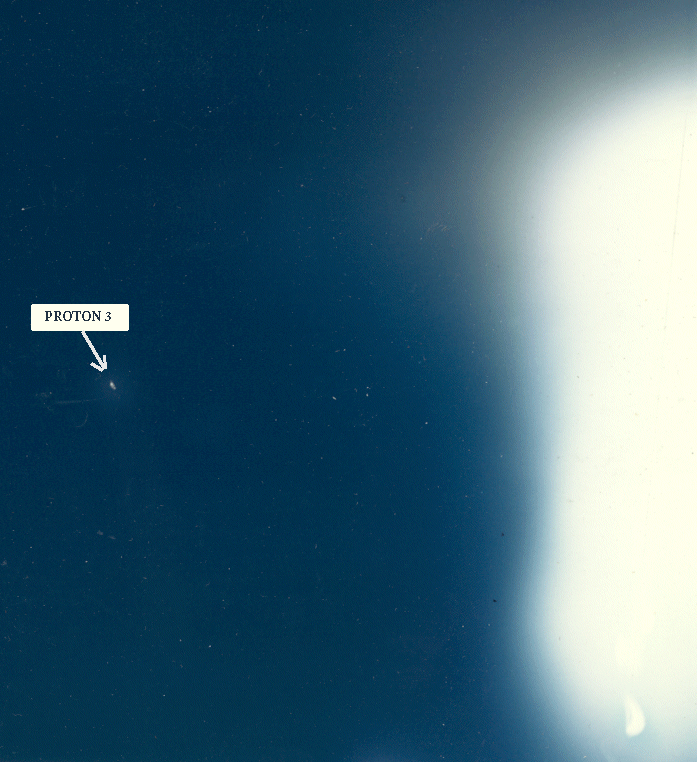
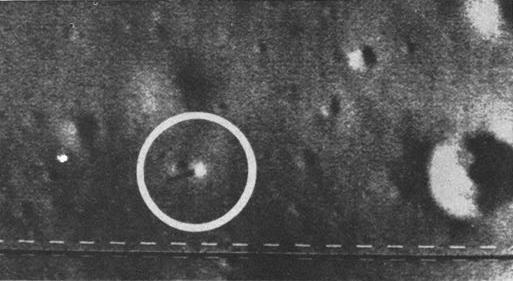
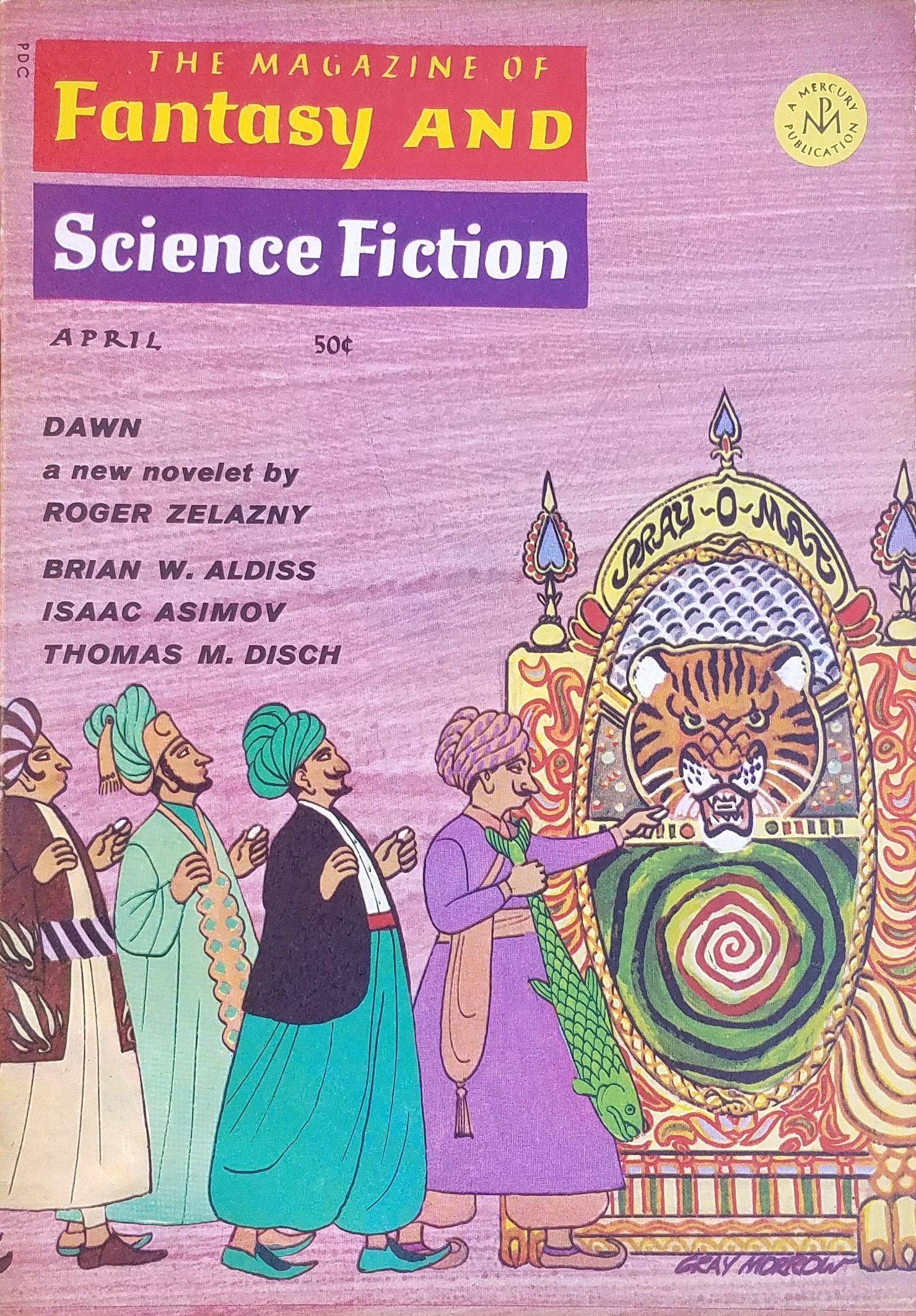
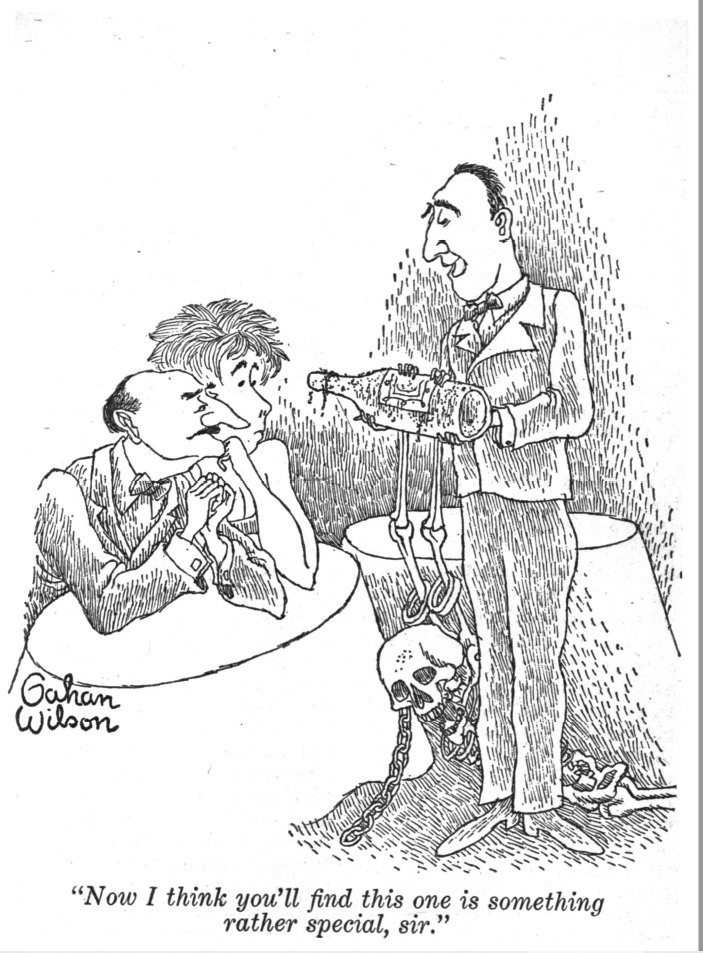
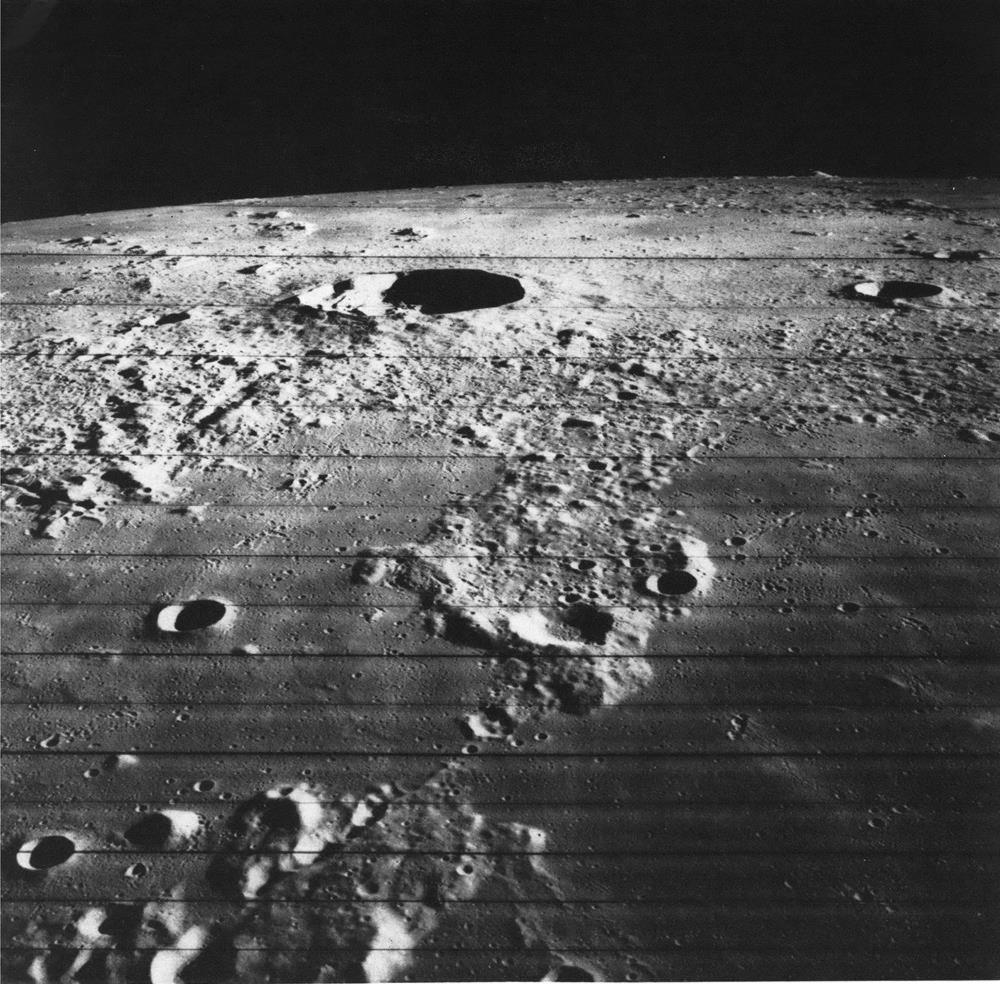
![[February 20, 1967] To Ashes (March <i>Fantasy and Science Fiction</i>)](http://galacticjourney.org/wordpress/wp-content/uploads/2022/02/670220cover-661x372.jpg)



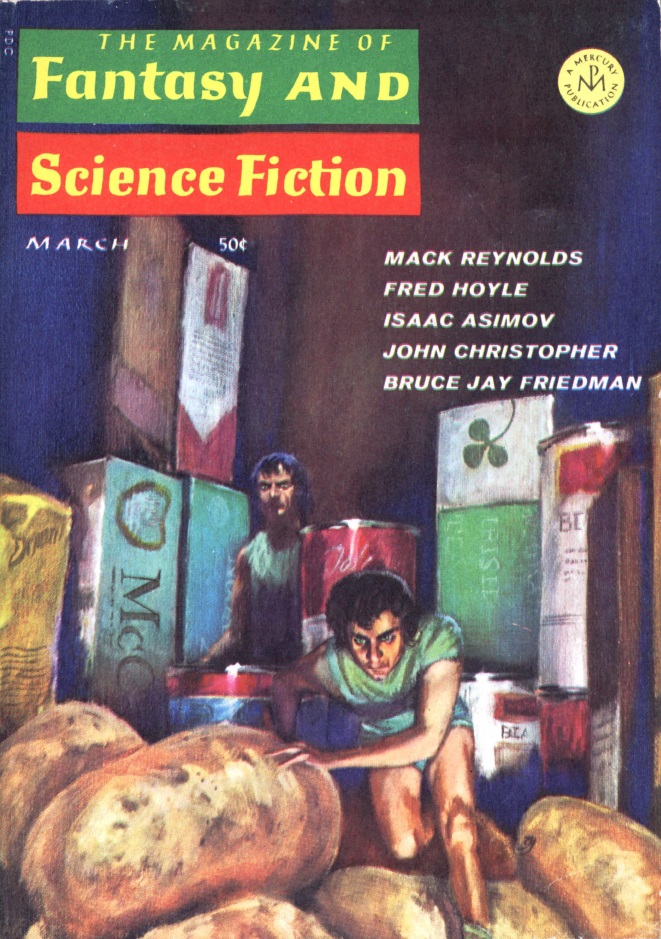
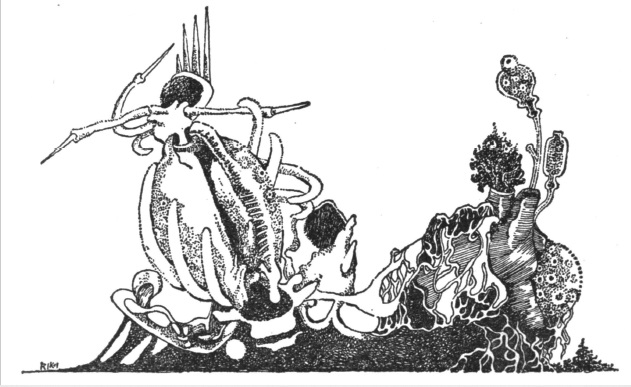
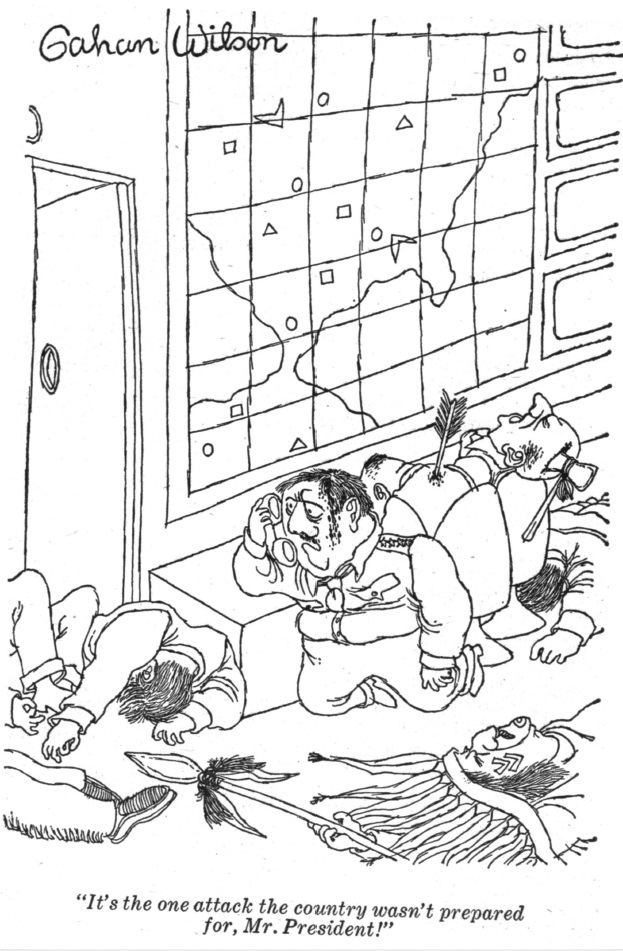
![[January 20, 1967] Sag in the middle (February <i>Fantasy and Science Fiction</i>)](http://galacticjourney.org/wordpress/wp-content/uploads/2022/01/670120cover-1-422x372.jpg)





![[December 20, 1966] Above and beyond (January 1967 <i>Fantasy and Science Fiction</i> and a space roundup)](http://galacticjourney.org/wordpress/wp-content/uploads/2021/12/661220cover-656x372.jpg)





![[November 22, 1966] Ha ha. Very funny. (December 1966 <i>Fantasy and Science Fiction</i>)](http://galacticjourney.org/wordpress/wp-content/uploads/2021/11/661122cover-661x372.jpg)




![[October 22, 1966] Why Johnny Should Read (November 1966 <i>Fantasy and Science Fiction</i>)](http://galacticjourney.org/wordpress/wp-content/uploads/2021/10/661022cover-653x372.jpg)





![[September 22, 1966] True Idols (the Isaac Asimov issue of <i>Fantasy and Science Fiction</i>)](http://galacticjourney.org/wordpress/wp-content/uploads/2021/09/660920cover-659x372.jpg)





![[August 20, 1966] Looking forward, looking back (September 1966 <i>Fantasy and Science Fiction</i>)](http://galacticjourney.org/wordpress/wp-content/uploads/2021/08/660820cover-672x372.jpg)



